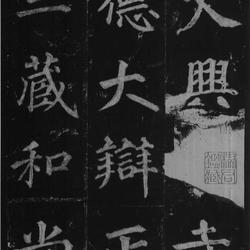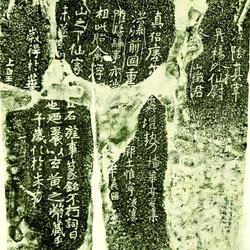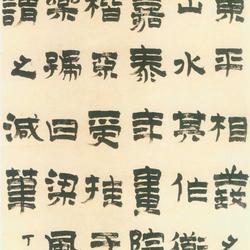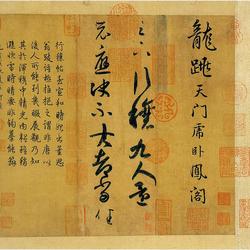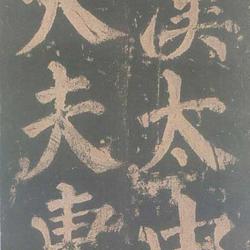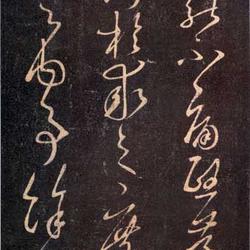"Li Xian's Epitaph" by Xu Hao
Xu Hao (703-782), a calligrapher of the Tang Dynasty. The courtesy name is Jihai, a native of Yuezhou (now Shaoxing City, Zhejiang Province), and the nephew of Zhang Jiuling. Born into a distinguished family. Officials reached Peng Wangfu, Kuaiji County Duke, and Prince Shaoshi.Shao Ju Ming Jing was given to Zhongshu Sheren during Suzong's reign, and most of the imperial edicts from all directions were written by Xu Hao. Later, he entered the Imperial Academy to offer sacrifices to wine, and successively served as Minister of the Ministry of Works, Minister of the Ministry of Officials, Bachelor of Jixian Palace, and was granted the title of Duke of Kuaiji County. He is the author of 1 article "Lun Shu" (also known as "Lun Shu Lun").Xu Hao has been proficient in calligraphy since he was a child. His ancestor Dao and his father Qiaozhi were both calligraphers.He is good at Bafen, Xing and cursive scripts, especially regular script.
The full name of "Li Xian's Epitaph" is "The Epitaph of Li Xian, the Duke of Liang Kingdom, presented to the prince's young master by Dr. Guanglu of the Tang Dynasty, who was also the governor of Quzhou and served as the regiment training envoy of the state." It was unearthed in Guodu Town, Chang'an District, Xi'an in 2000. At the same time, the "Epitaph of Li Xian's Wife Dugujun" was unearthed, both of which are now stored in the Chang'an District Museum."Li Xian's Epitaph"It is made of square bluestone, with a side length of 91 cm and a thickness of 14 cm. It has a total of 32 lines and a full line of 33 characters, totaling 1053 characters. The font is regular script. "Li Xian's Epitaph" mainly records the changes in official positions and political achievements that Li Xian experienced throughout his life. Compared with the "Old Tang Book", it is basically consistent with the "Old Tang Book", but there are slight differences. It can be seen from the annals that Li Xian died in his official residence on July 8, the second year of Yongtai, the fifty-fifth year of the Spring and Autumn Period. It can be inferred that he was born in the first year of Xuanzong's Xiantian (712 AD), and "New Book of Tang" and " According to the Old Book of Tang Dynasty, he died at the age of fifty-eight. Xu Hao was nine years older than Li Xian, and the Epitaph of Li Xian's Wife was also written by Xu Hao (in the 13th year of Tianbao, another textual examination). Xu Hao wrote and wrote this epitaph. It is certain that Xu Hao and Li Xian had a close relationship. It is recorded in the postscript of "Xu Hao Stele" recorded in "Cui Bian", so the record of his birth year cannot be wrong, so the age recorded in the epitaph should be used as the standard, and errors in official history books can also be tolerated.
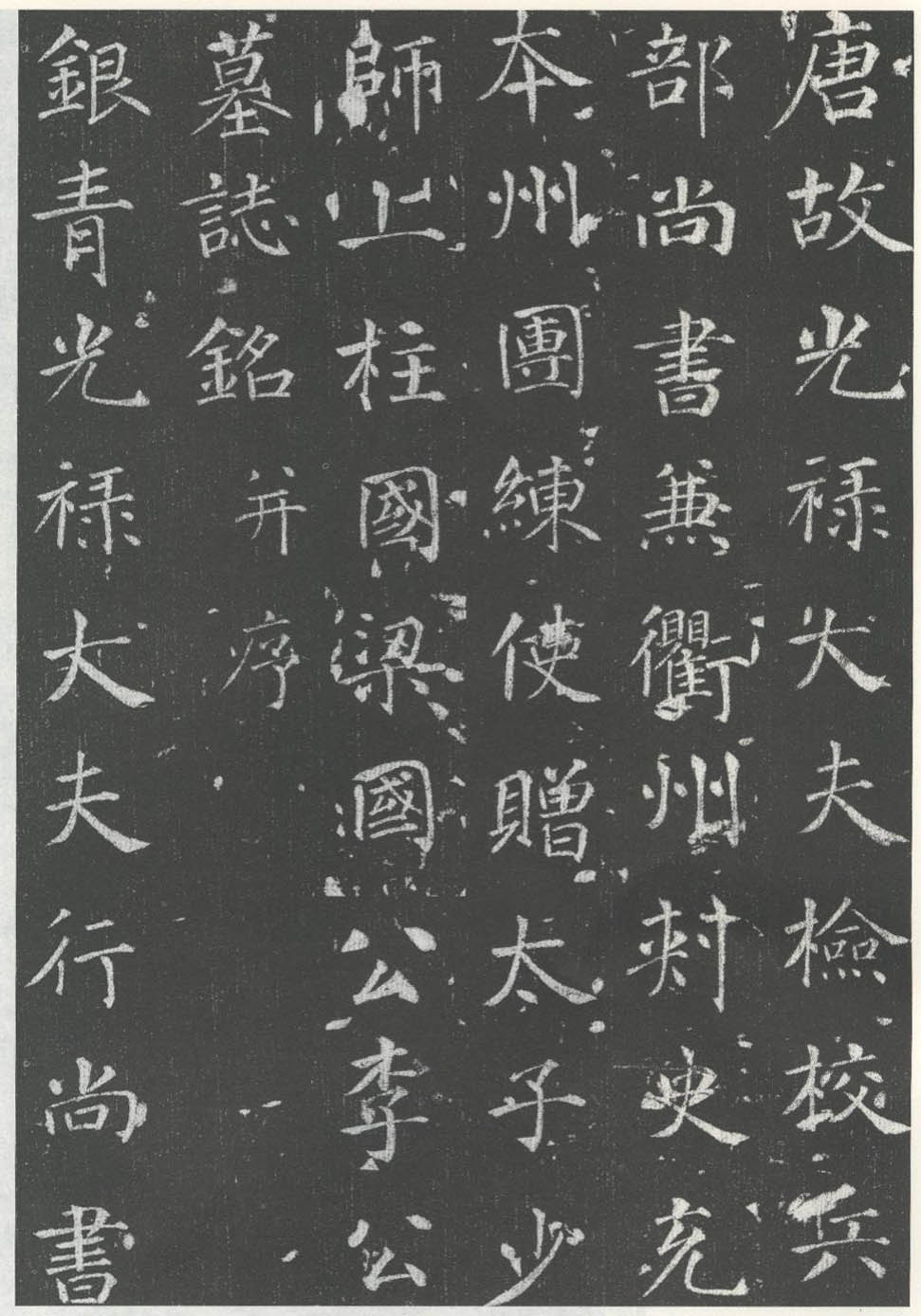
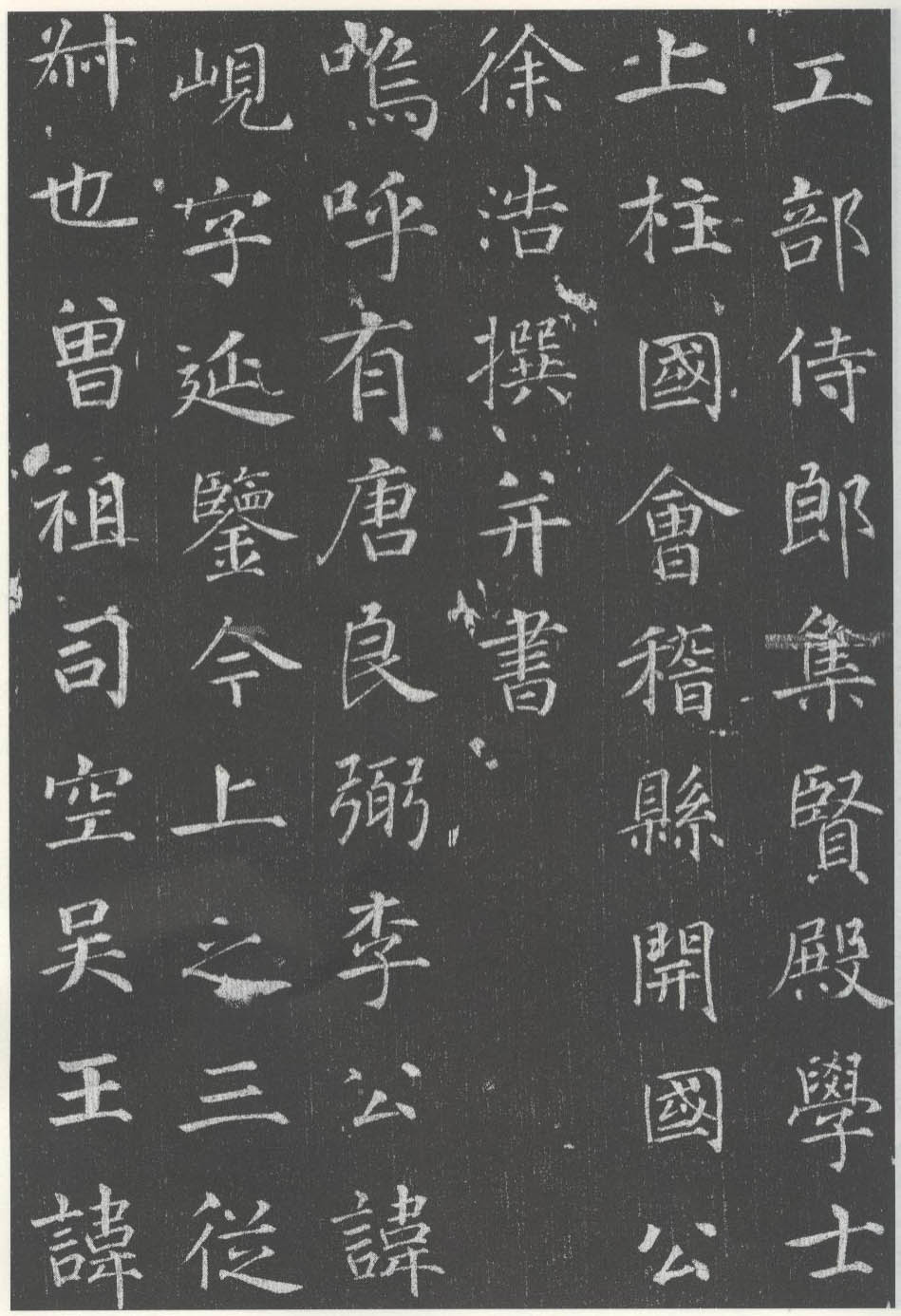
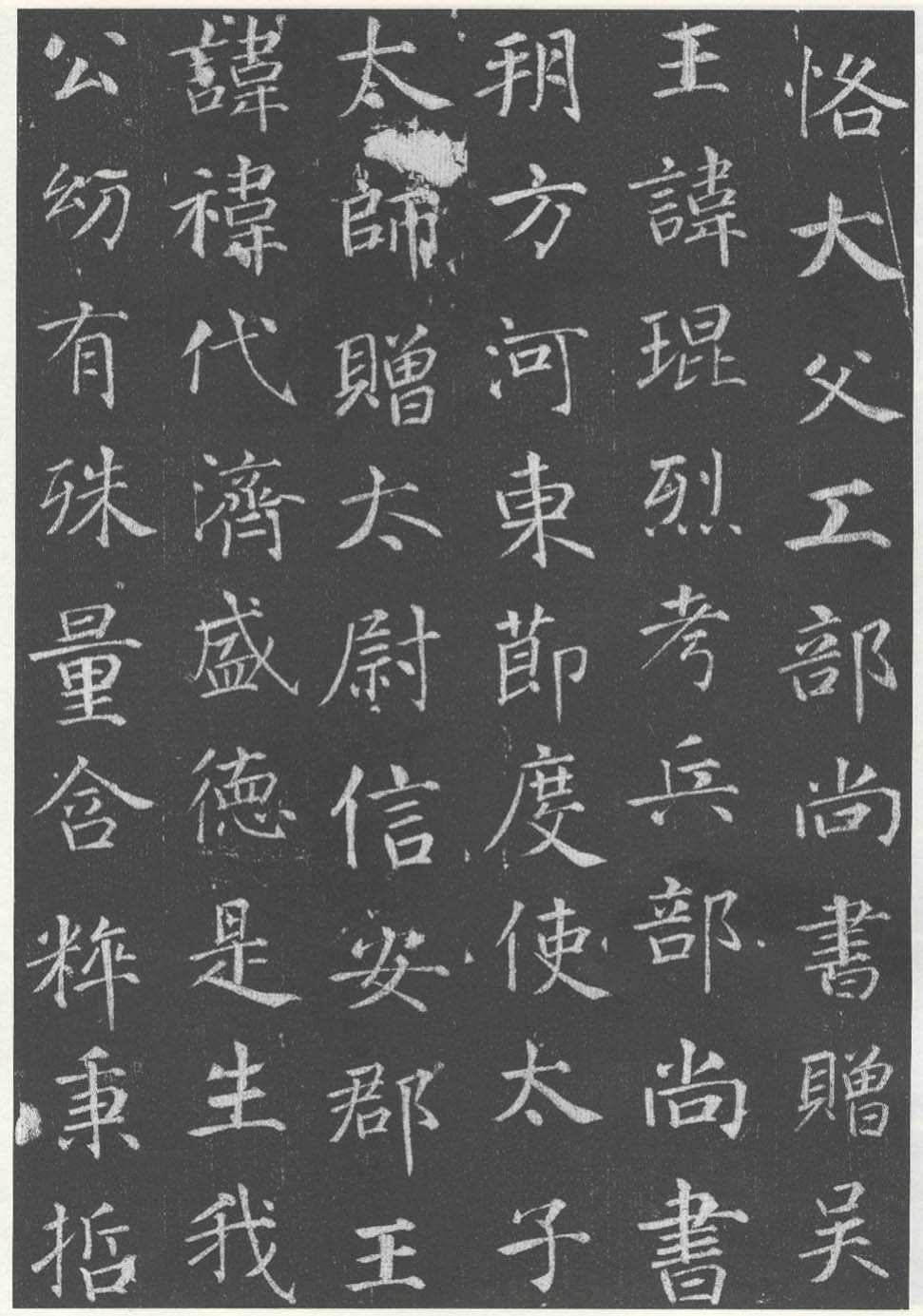
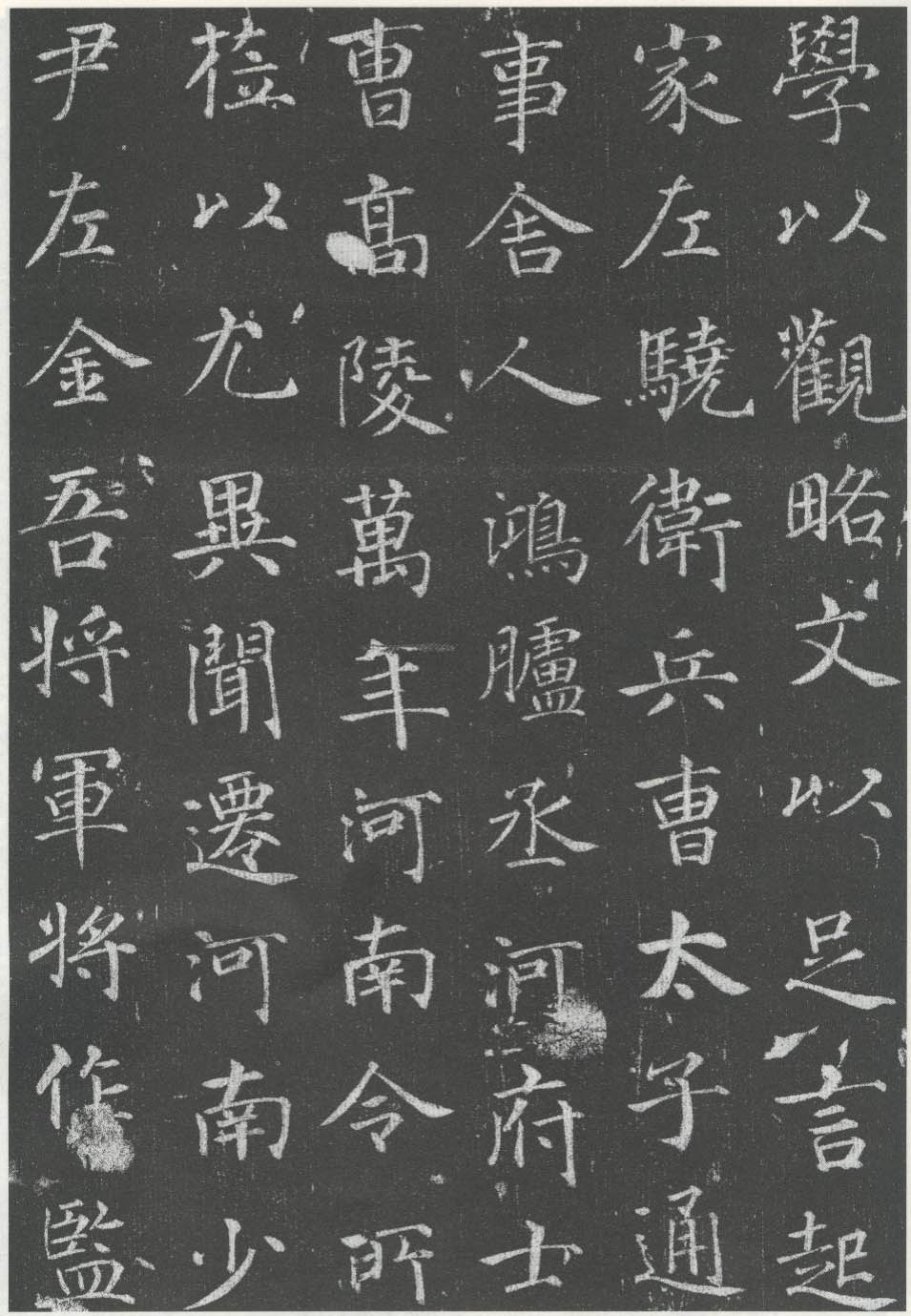
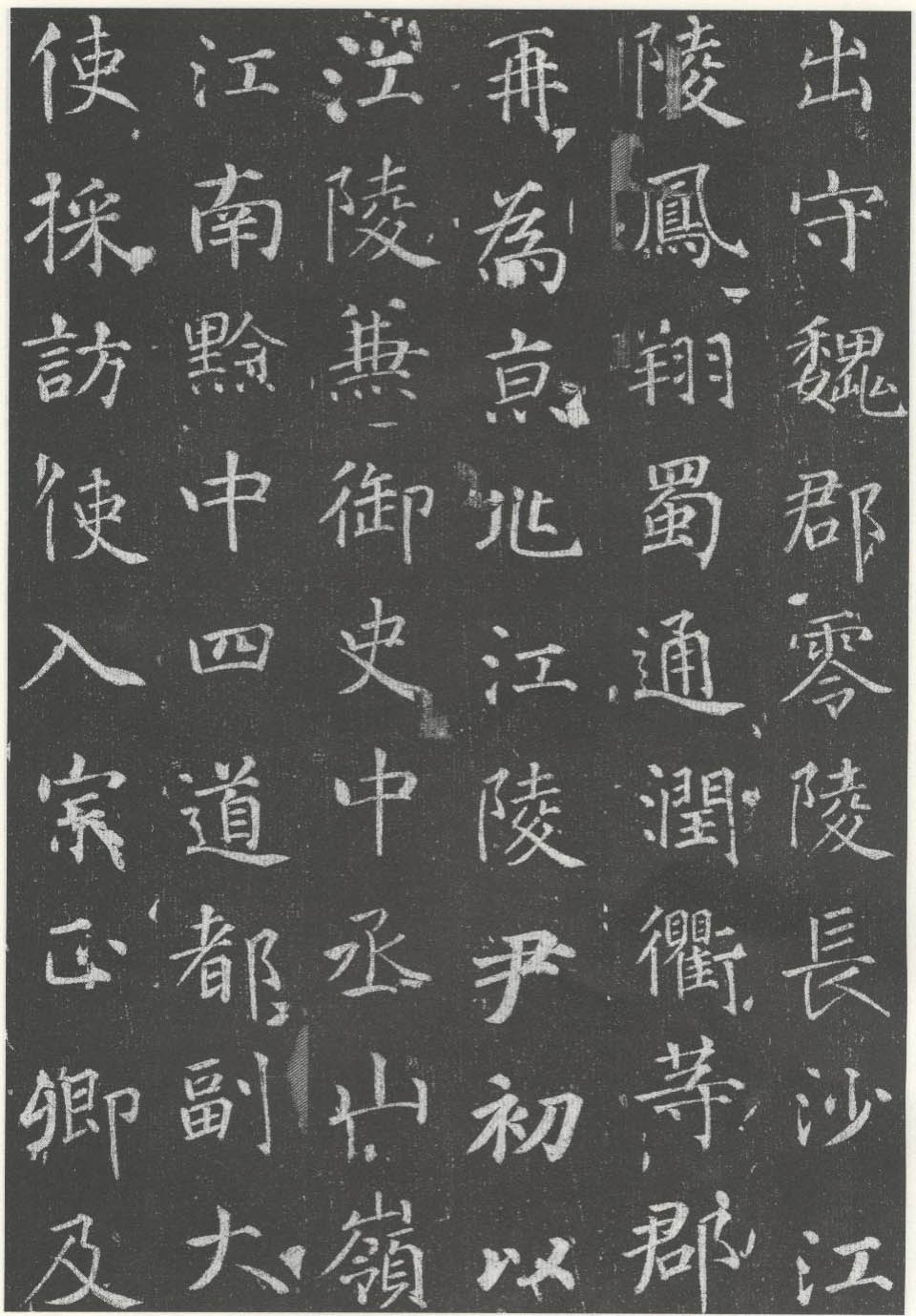
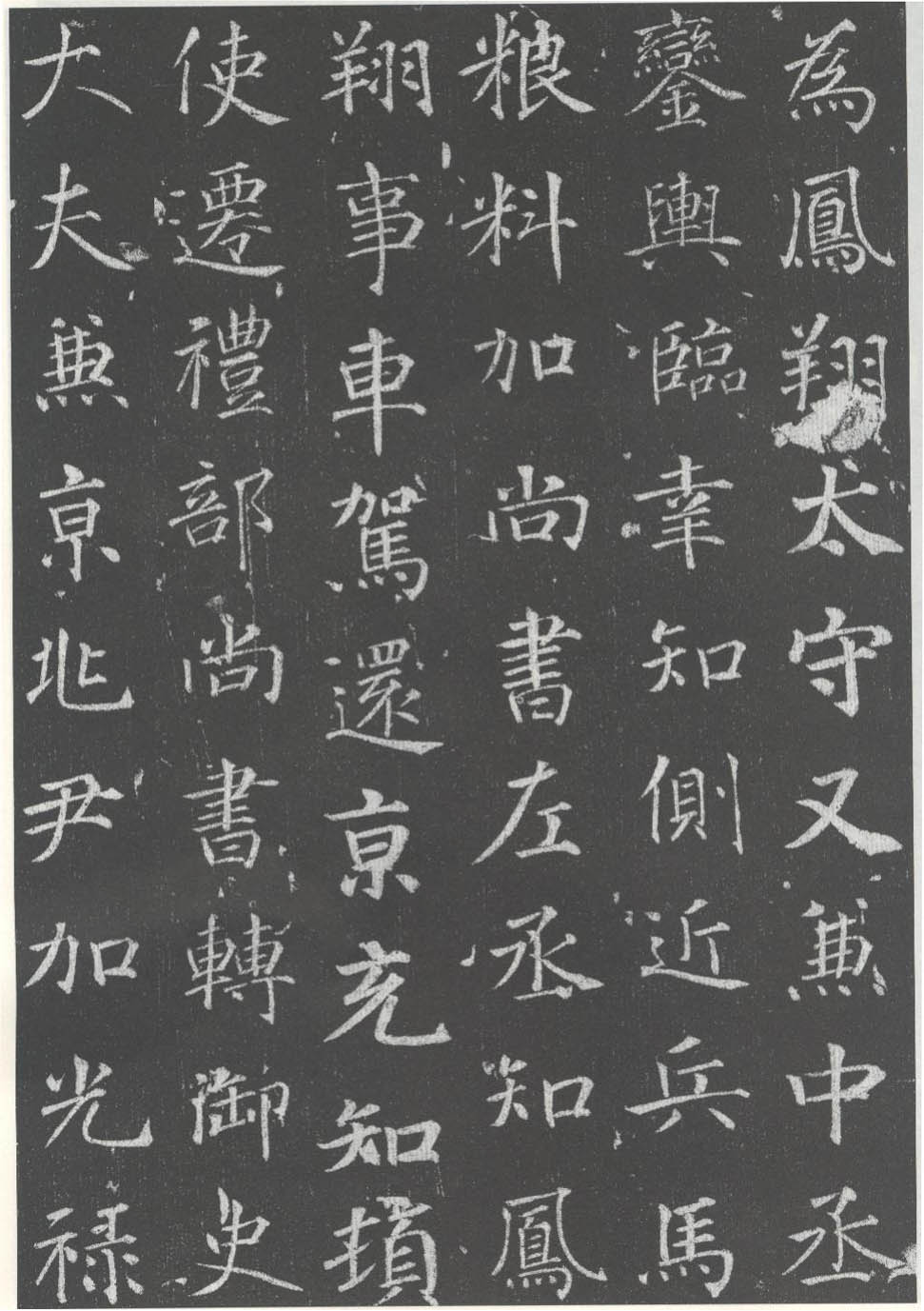
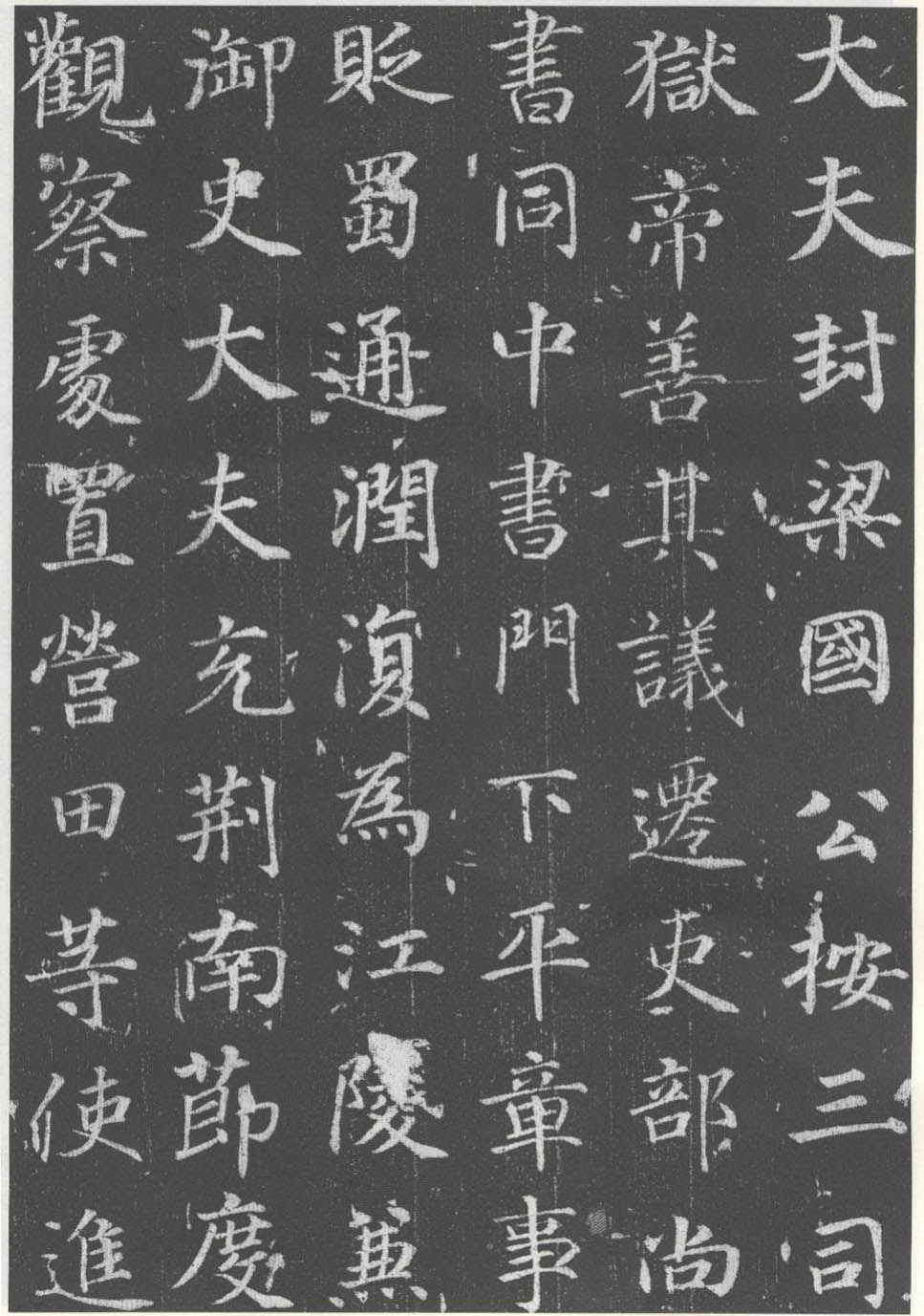
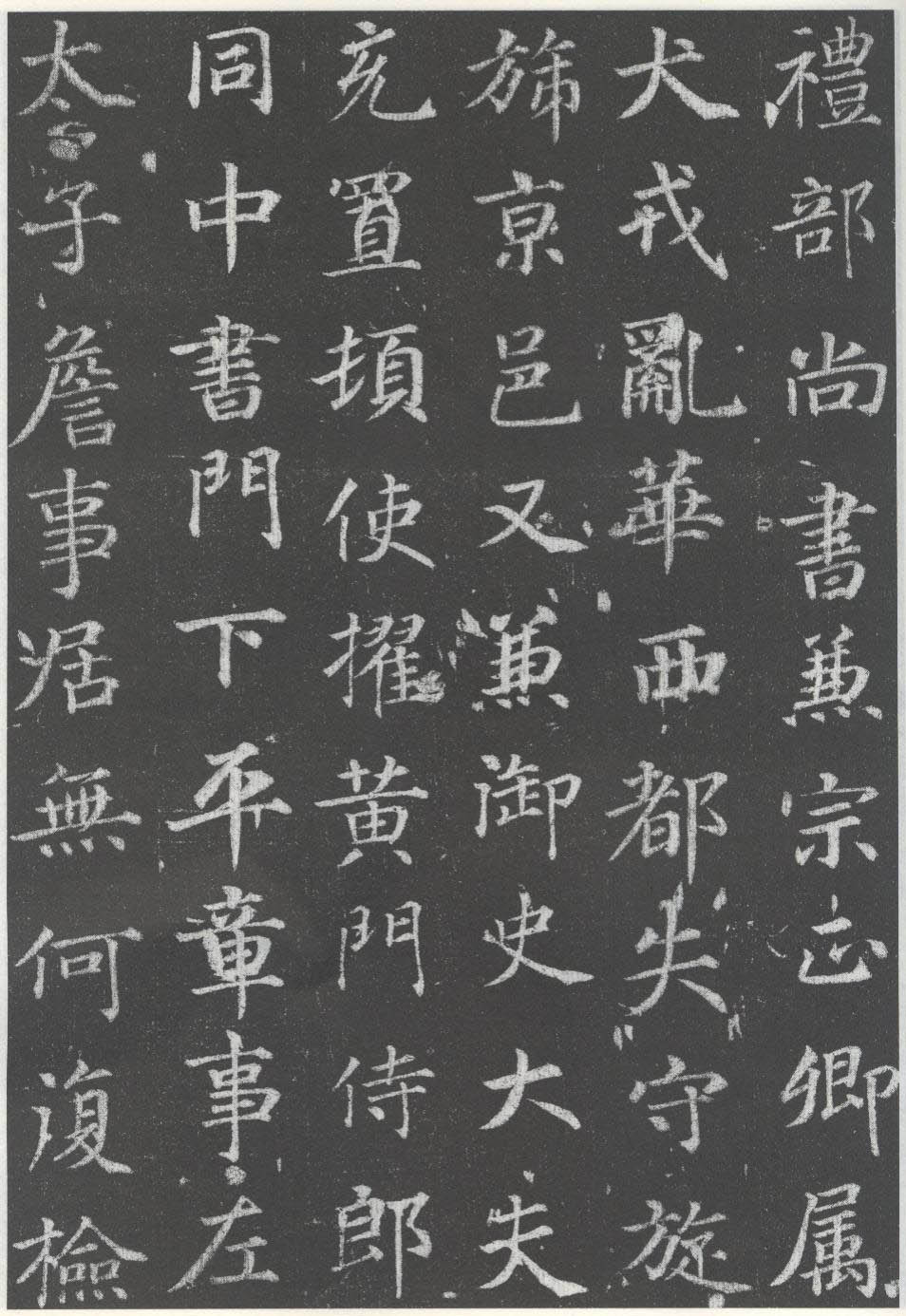
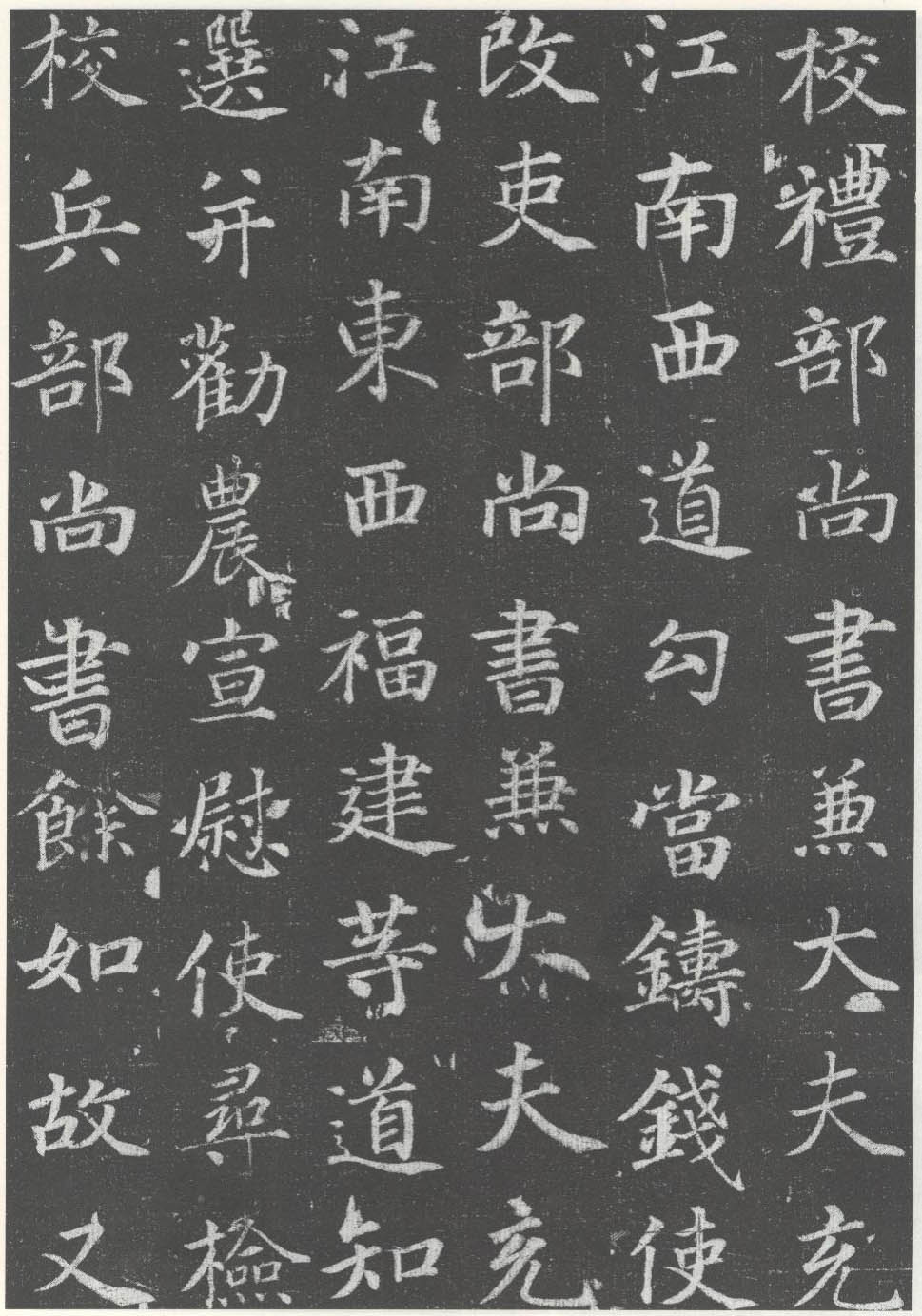
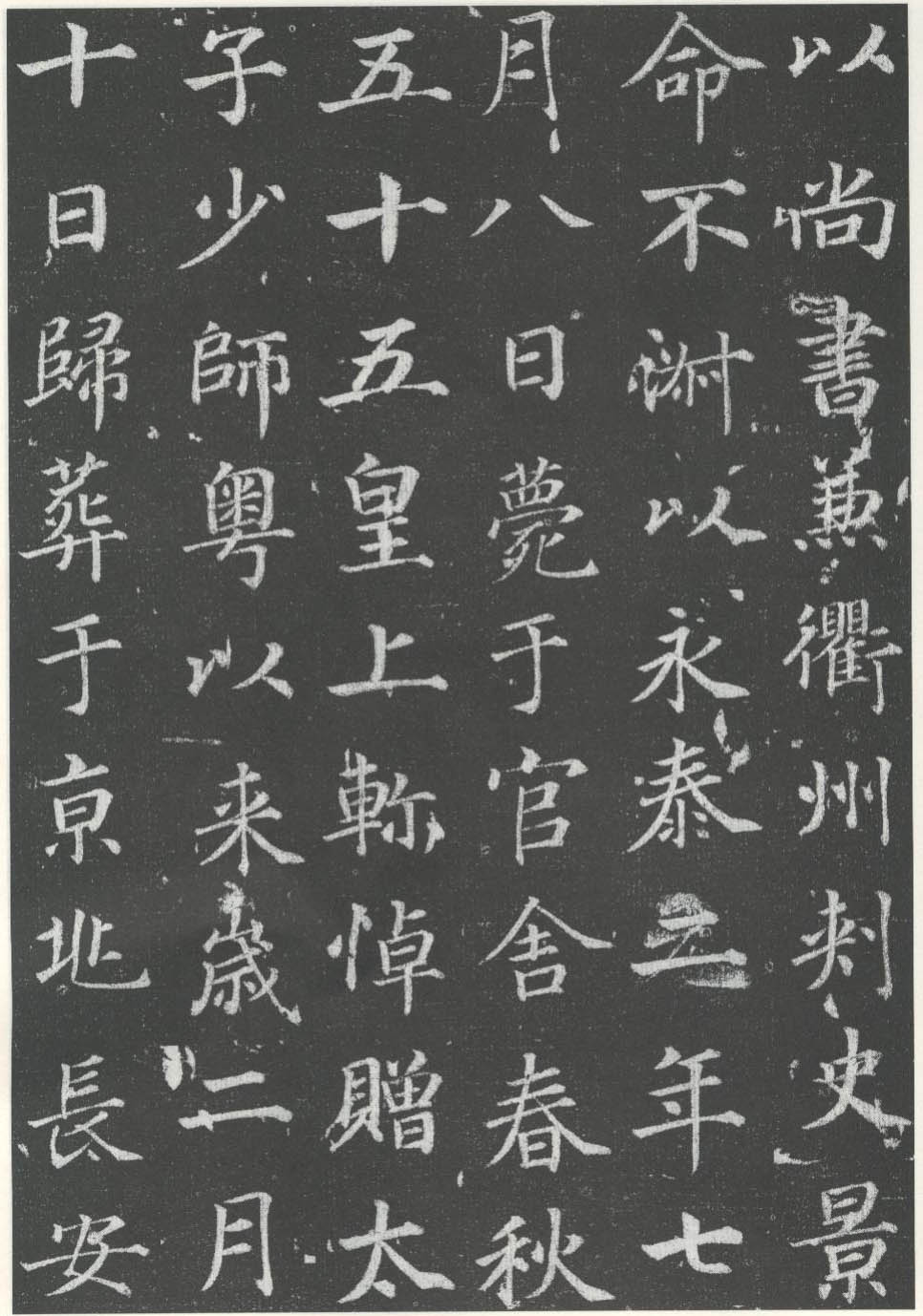
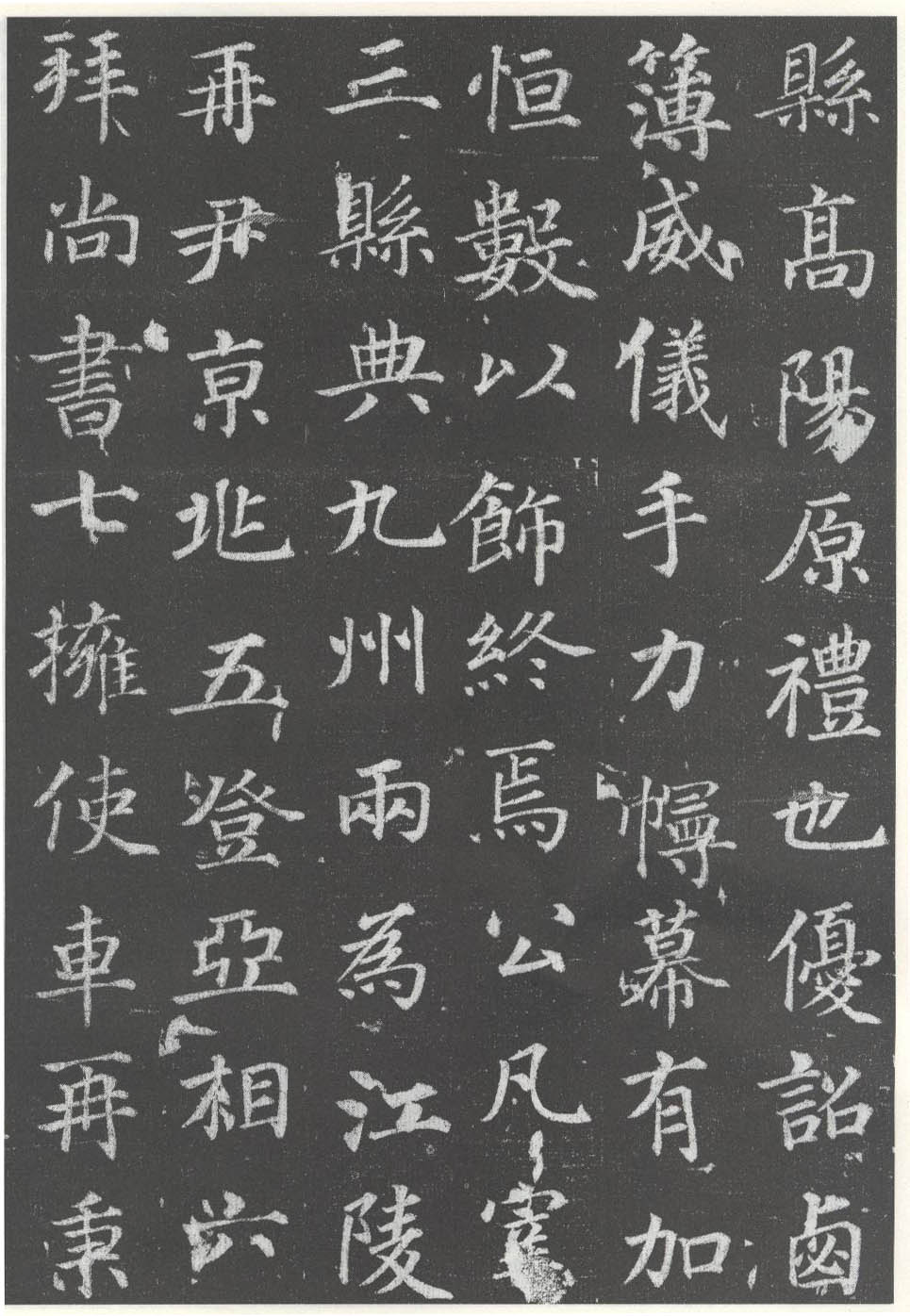
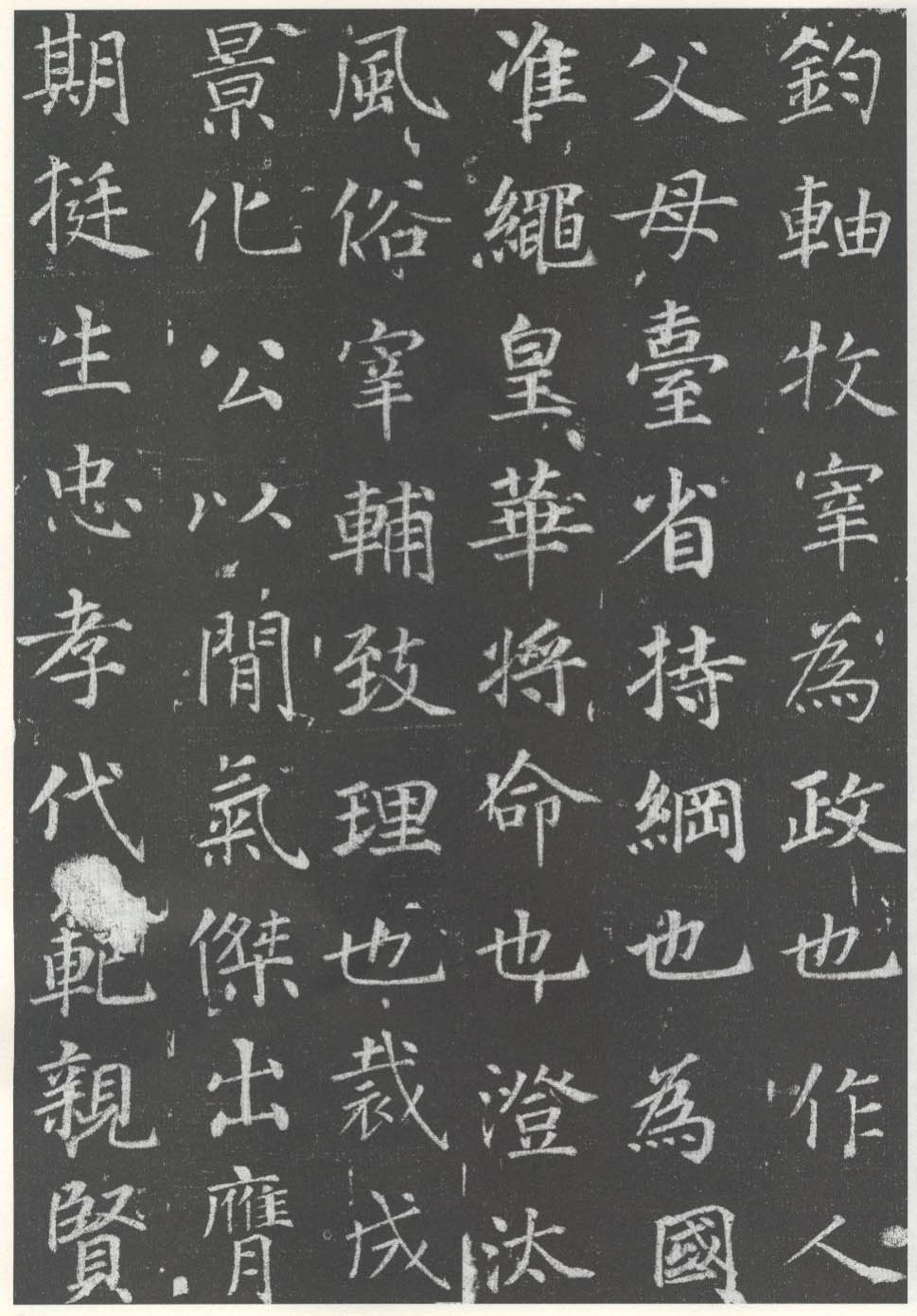
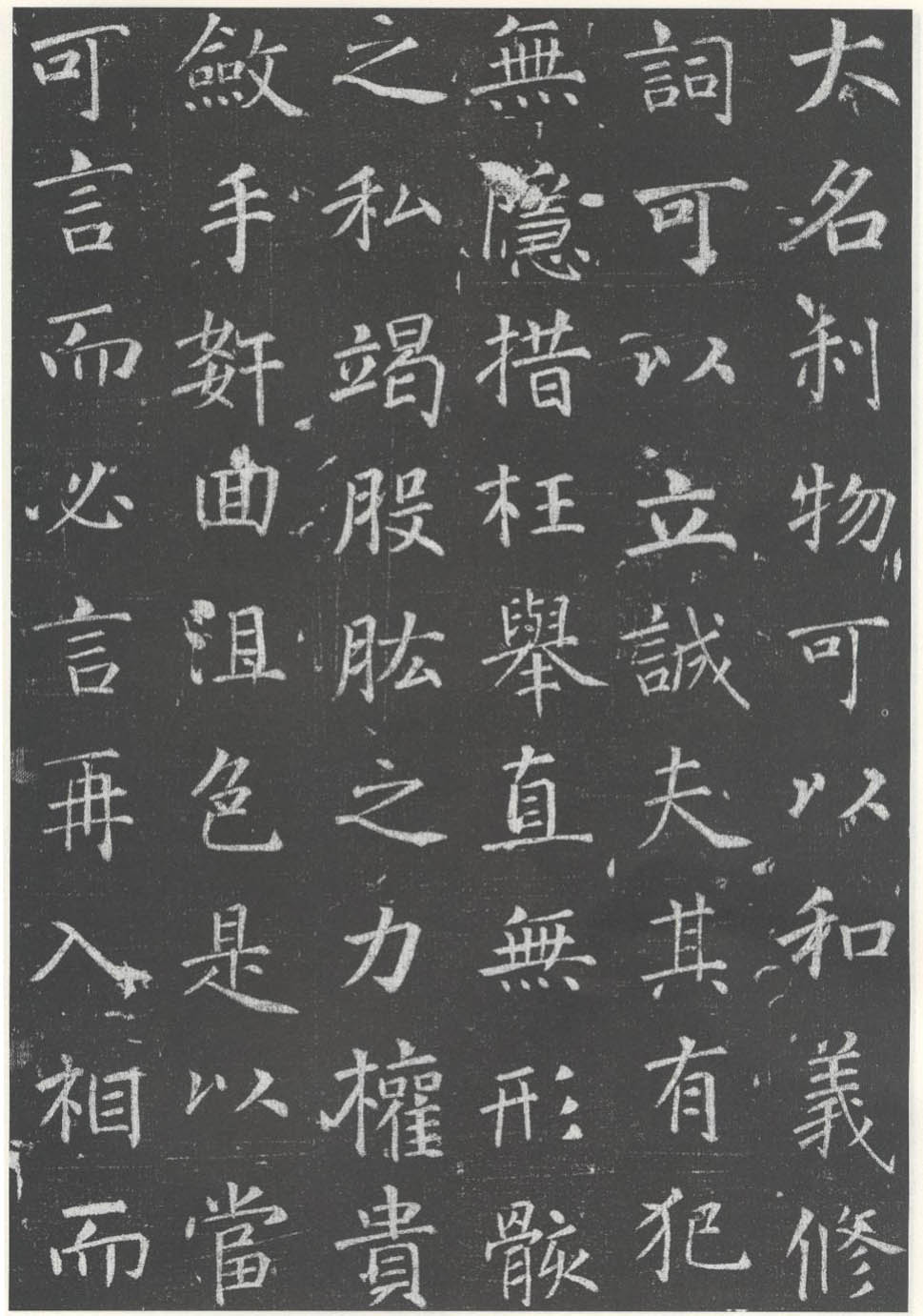
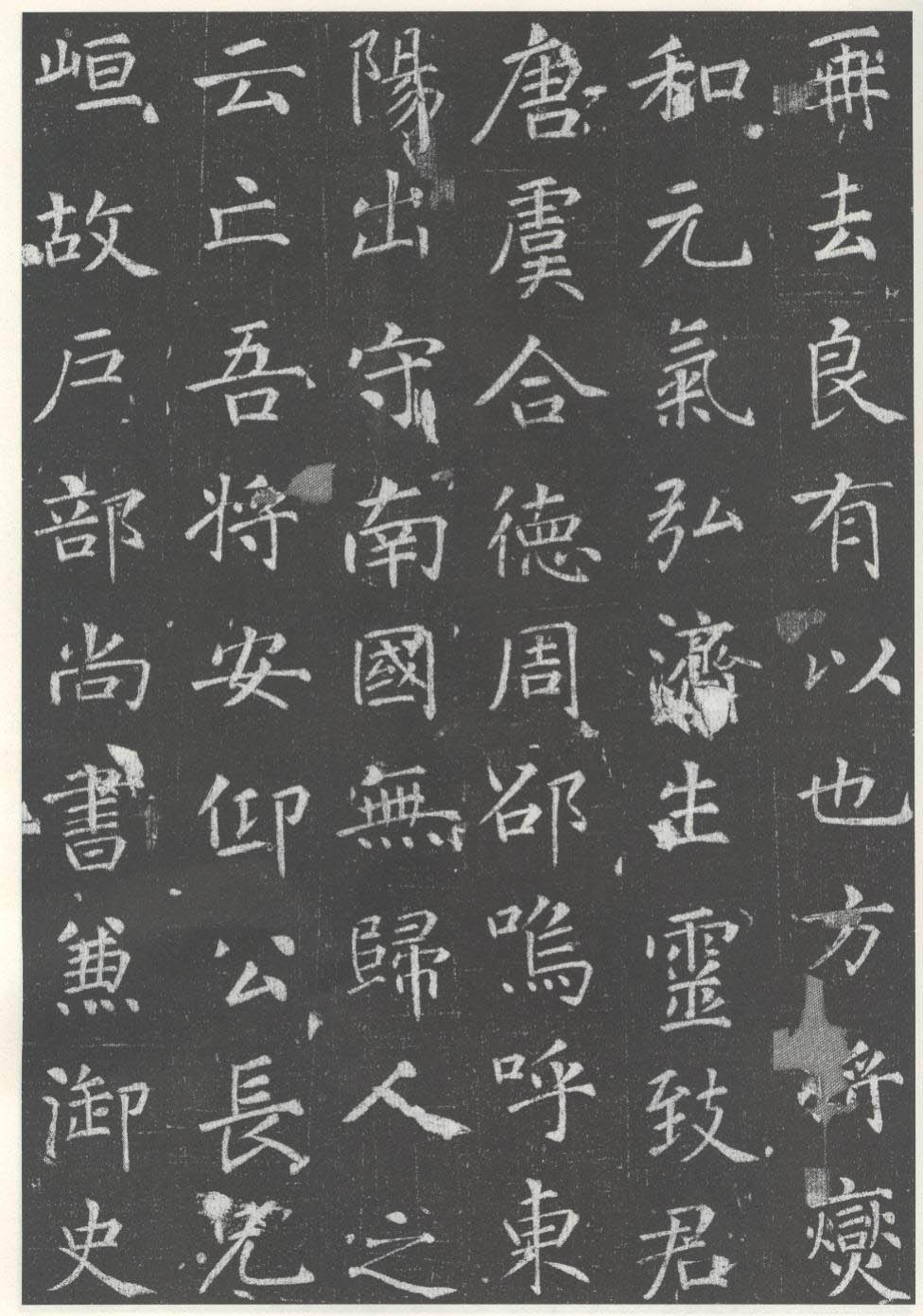
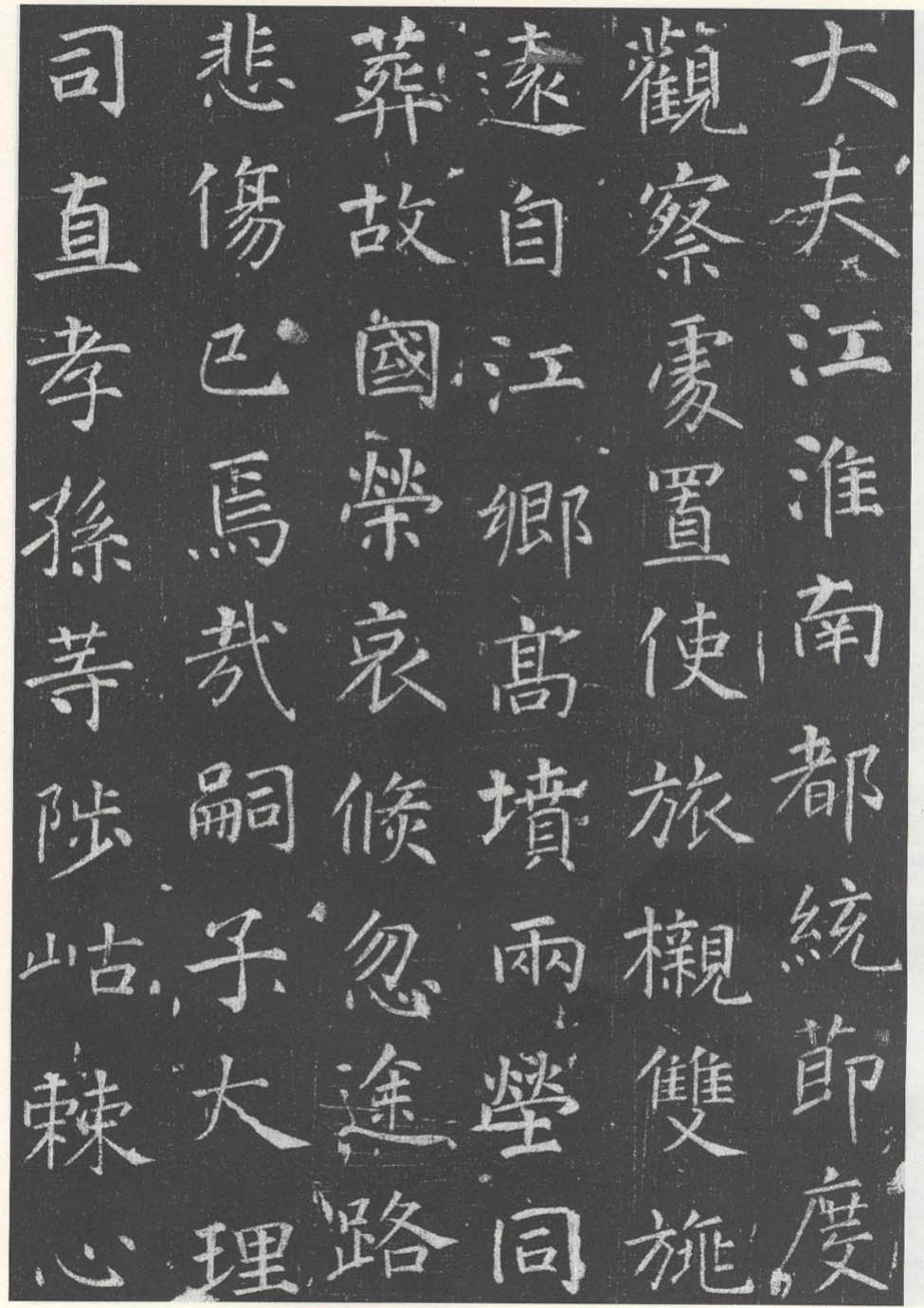
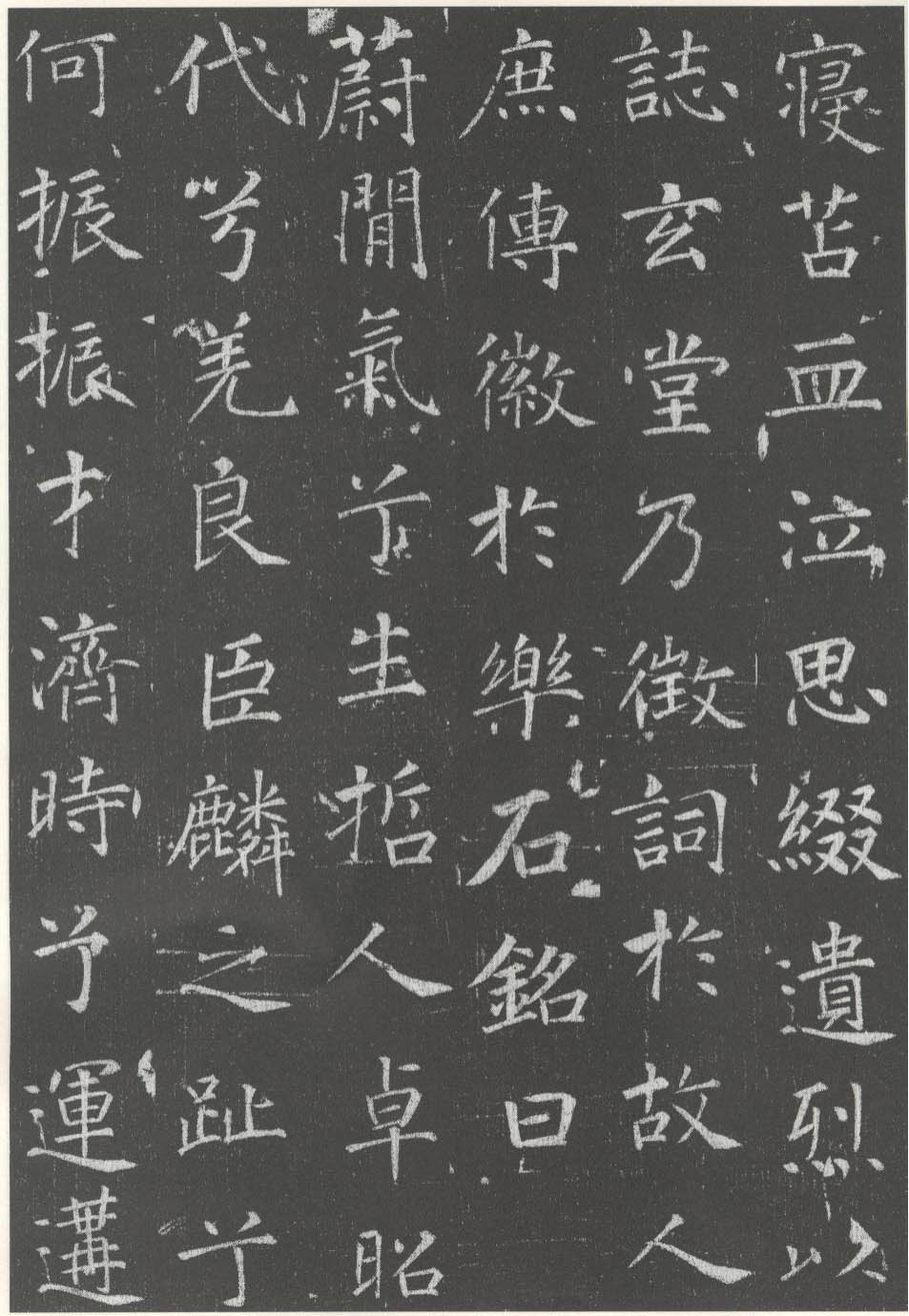
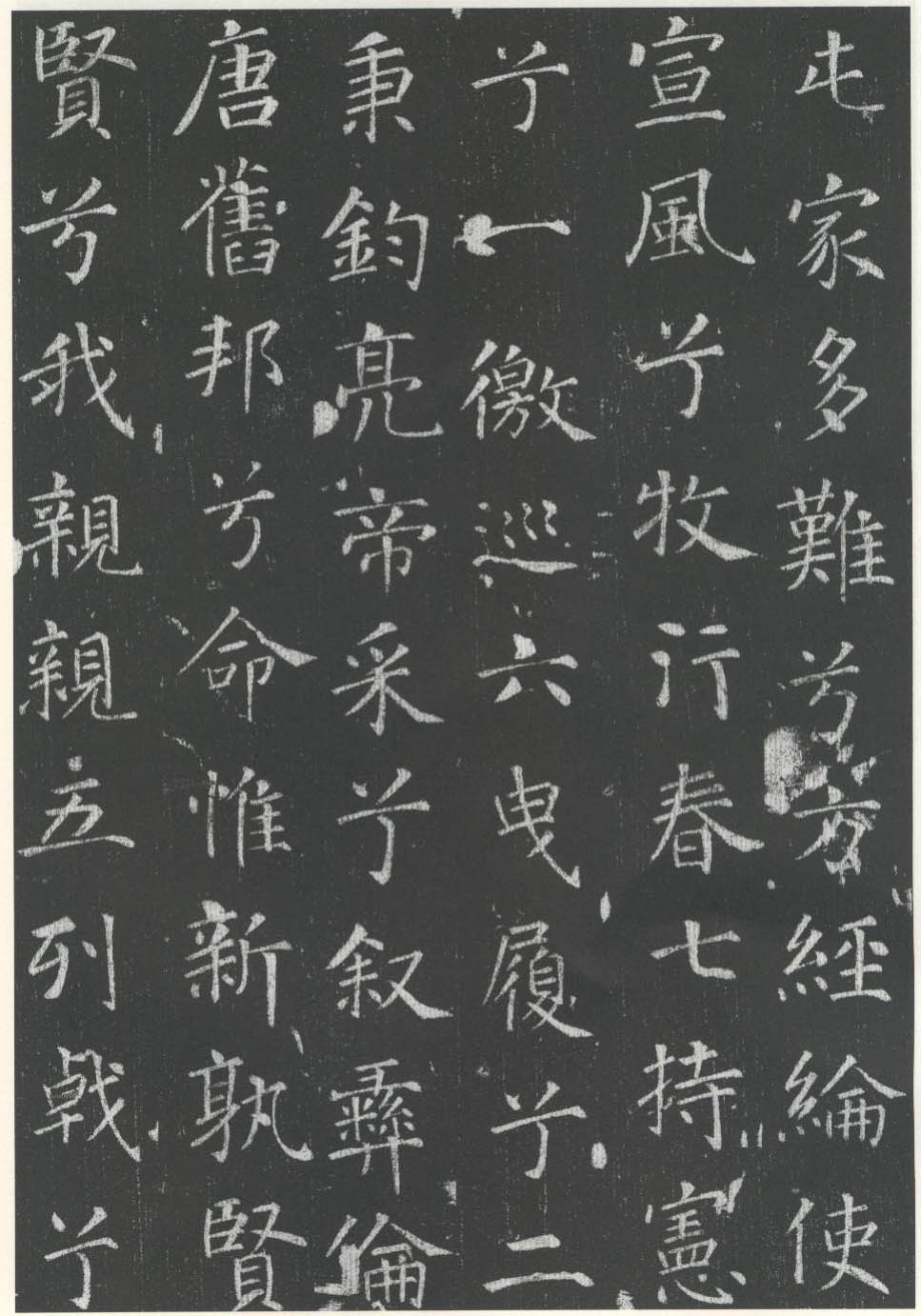
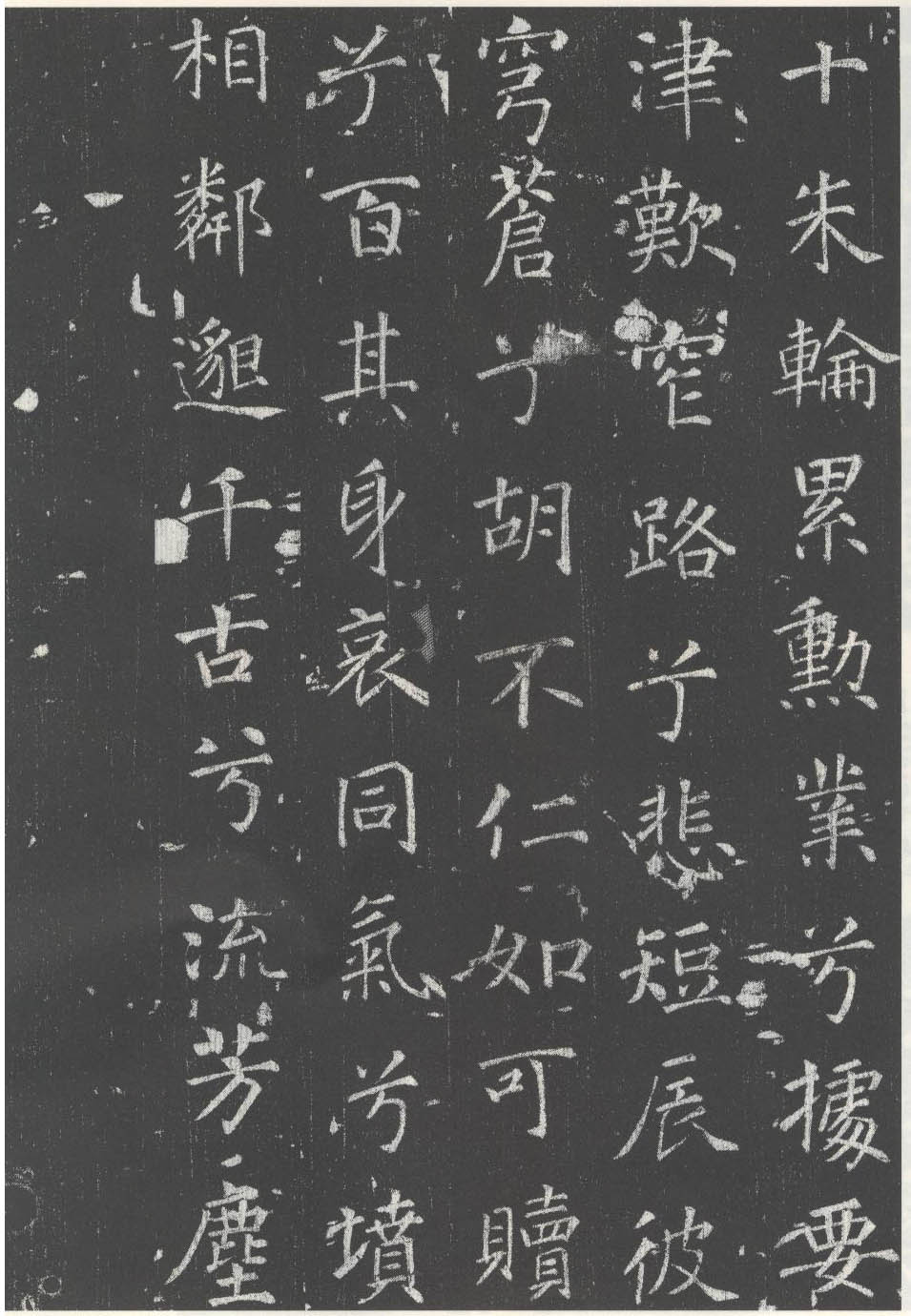
The structure of the text in this Zhizhi is rigorous and smooth, and the strokes are precise and stretched. Compared with "Bu Kong Monk Monument", it does not have the sense of agility, stability, and unity of ups and downs. It is more steady, like a humble gentleman, implicit and unrevealed. , but it is slightly sharper in some handling of starting, closing and folding the pen. Because the full text was written by Xu Hao himself, the writing appears vivid, smooth, gentle and elegant, full of bookishness without losing the sense of force. Xu Hao was 64 years old when he wrote this monument, and he still has such strength and spirit. Not easy. His meticulous yet varied brushwork, rigorous and steady work, and well-organized compositions have many similarities with the "Duobao Pagoda Stele" written by Yan Zhenqing when he was 41 years old. He said: "Yan Shu wants to have tendons in his paintings, and his pen is the same as that of Xu Jihai and his son." This can be proved by this Zhiwen. Xu Hao, who was already a senior at that time, could still write such exquisite works, which shows his profound calligraphy skills.
Judging from Xu Hao's regular scripts that have been handed down to this day, the early "Chen Shangxian Epitaph" does not have its own style characteristics. Its writing is slightly thin and strong, and the pen and structure seem to follow the pre-Tang Dynasty standards, while the "Bu Kong Monk Monument" is His masterpiece in his later years, his writing style has a slightly cursive style and is full of astringency. It can be said that the calligraphy is old, so this "Li Xian Epitaph" should be Xu Hao's most rigorous regular script masterpiece.
Explanation:
In the Tang Dynasty, Dr. Guanglu inspected the school and was the Minister of the Ministry of War. He was also the governor of Quzhou and served as the training envoy of the regiment of the state. He presented it to the prince's young division Shangzhu. The epitaph of Li Gong, Duke of Liang, was inscribed with a preface in silver. Dr. Guanglu of the Tang Dynasty was appointed as the Minister of the Ministry of Industry. Gong Xuhao wrote and wrote Woohoo! Liangbi Li Gong of Tang Dynasty named Xian, whose courtesy name was Yanjian, and he was now the third uncle of the emperor. His great-grandfather was Sikong, the King of Wu, and his eldest father was the Minister of the Ministry of Industry and the King of Wu, and he was the Minister of the Ministry of War. The great virtue of Daiji is the father of my father. When he was young, he had a special capacity, with pure philosophy. He learned through observation and writing, and wrote with sufficient words. Starting from Zuo Xiao, guard Cao, Prince Tongshi Shiren, Honglu Cheng, Hefu Shicao, Gaoling Wannian Henan Order, all came to Yiyiwen. He moved to Henan Shaoyin, General Zuo Jinwu, and general served as prisoner, and went out to guard Weijun, Lingling, Changsha, Jiangling, Fengxiang, Shu, Tong, Run, Qu and other counties, and then became Jingzhao and Jiangling Yin. At the beginning, he served as Jiangling and censor Zhongcheng, deputy ambassador and interview envoy of Shan, Ling, Jiangnan and Qianzhong provinces, and became Zongzhengqing. He also served as Fengxiang prefect and Zhongcheng. Zuo Cheng, knowing about Fengxiang's affairs, returned to the capital with his chariot and was appointed as the envoy of Dun. He was moved to the position of Minister of the Ministry of Rites, transferred to the imperial censor and the official of Jing Zhaoyin, became the official of Guanglu, and was granted the title of Duke of Liang. According to the three-level prison, the emperor was good at his proposal and moved the Ministry of Personnel to Tong Zhongshu to make peace with the affairs. He was demoted to Shu Tongrun, and was restored to Jiangling and censorship doctor, and served as the envoy of Jingnan Jiedu to observe and deal with the camps and fields. He served as Minister of the Ministry of Rites and concurrently as Zong Zhengqing. He was a member of the Quan Rong army who invaded China and lost the Western Capital. He also served as the official imperial censor and acted as a temporary envoy. He promoted Huangmen Shilang, Zhongshu Menxia Pingzhangshi and Zuo Prince Zhanshi. When he was in Wuhe, he was reexamined as a minister and a doctor in the school's Ministry of Etiquette, and served as a coin minter for Jiangnan West Road. He was appointed Minister of the Ministry of Civil Affairs and a senior official, serving as the governor of Jiangnan, East and West, Fujian and other provinces, and he also encouraged farmers and promoted comfort. After searching and inspecting the Minister of the Military Department of the school, the rest were as before. He was also the Minister of Quzhou, and his fate was unkind. On July 8, the second year of Yongtai, he passed away in his official residence. On the 55th day of the Spring and Autumn Period, the Emperor paid his respects and presented it to the Prince's Young Master. On the 10th day of the second lunar month of the following year in Guangdong, he was buried in Gaoyangyuan, Chang'an County, Jingzhao. The etiquette was excellent, the imperial edict was low, and the ceremony was small and majestic. The curtains were made by hand, and a constant number was added to decorate the end. Gongfan took charge of three counties and coded Jiuzhou. The second is Jiangling, the second one is Yin Jingzhao, the fifth one is the sub-prime minister, the sixth one is the minister, the seventh one is the envoy chariot, and the third one is holding the Jun axis. The pastoral minister is responsible for politics and being a parent; the provincial government is the guideline, which is the guideline for the country; the emperor is the commander of the country. Yes, the customs are eliminated; the prime minister and the assistants are responsible for the rationality, and they are cut into landscapes. The Duke has an outstanding temperament, strong morale, loyalty and loyalty to his example, and is famous for his close relatives and virtuous people. Good things can harmonize meaning, and improving words can establish sincerity. The husband's crimes are not concealed, his measures are in vain, his selfishness is invisible, and he uses all his strength. The powerful and powerful people hold back their hands, and their adultery turns back to Juju. Therefore, when you can speak, you must speak, and when you enter the phase again, you must leave again. This is a good thing. Fang Jiang Xie harmonized the vitality, promoted the welfare of living beings, led to the kings of Tang and Yu, and united the virtues of Zhou and Shao. Woohoo, Dongyang went out to guard, and the southern country could not return. The clouds of people perished, and I will look up to them in peace. The eldest brother, Xi, was the former Hubu Shangshu and imperial censor. He was the envoy of Jiedu for investigation and disposal in the southern parts of Jiang and Huai. He traveled far away from Jiangxiang and was buried in two high tombs in his homeland. The glory and sorrow are sudden, and the journey is sad. That’s it. His heir, Dali Si Zhi, his filial piety and his grandson, etc., had a thorny heart and wept with blood while sleeping in thatch. Thinking of a legacy, Zhi Xuantang, the poem was written by an old friend and passed down to Leshi. The inscription says:
The Qi of Wei Jian brings forth philosophers, and the great ministers of Qiang and Zhuo Zhao are born. Lin's toes are here to vibrate, and the talent comes to help when the time comes to transport Tuen. When the family is in trouble, Fang Jinglun makes the wind spread and herdsmen travel in spring. Seven holding the constitution, one patrolling, six dragging repeatedly, two holding the jun. Emperor Liang praised Yilun, and the old state of Tang Dynasty had a new destiny. Who is the virtuous and virtuous? I will kiss you. The five columns of stems and the ten red wheels. We have accumulated many merits and deeds, so we can seize the key points. We sigh that the road is narrow and we are sad that it will be short -lived. There is no human being in that sky, and one hundred of his bodies can be redeemed. The graves are adjacent to each other, and the fragrance flows through the ages.

